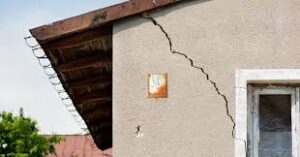Construction Defects

A construction defect attorney specializes in handling legal issues related to defects in construction projects, whether residential, commercial, or industrial. Construction defects can range from issues with the quality of materials used, improper workmanship, failure to meet building codes, or design flaws. These defects can cause significant financial loss, safety risks, and long-term damage, making it essential to have legal representation to pursue a claim or defend against allegations.
Here’s how a construction defect attorney can help in a lawsuit:
1. Identifying Construction Defects
- Inspection and Evaluation: The attorney will work with experts such as engineers, architects, or construction inspectors to identify and evaluate defects in the construction. This could include issues like water leaks, foundation problems, electrical issues, faulty plumbing, mold, or structural integrity concerns.
- Defining the Scope of the Defect: They will help determine whether the defect is significant (e.g., compromising the safety of the building) or minor (e.g., aesthetic imperfections) and whether it constitutes a breach of contract, warranty, or building code violations.
- Differentiating Between Defects and Maintenance Issues: The attorney will help distinguish between a defect (which is typically the result of poor design, materials, or workmanship) and a maintenance issue (which could be the result of neglect or wear and tear).
2. Assessing Legal Rights and Remedies
- Reviewing the Contract and Warranties: Construction defect attorneys will review the contracts, subcontracts, and warranties associated with the project to assess the legal rights and responsibilities of the parties involved (e.g., property owners, contractors, subcontractors, and suppliers).
- Determining Breach of Contract: If the defect is related to a failure to meet contractual obligations or specifications, the attorney will identify whether there is a breach of contract claim.
- Exploring Statutes of Limitations: Construction defect cases are subject to statutes of limitations (time limits for filing claims), so an attorney will assess whether the claim is still viable based on when the defect was discovered and when the work was completed.
3. Filing a Lawsuit for Construction Defects
- Preparing the Complaint or Petition: If negotiations or alternative dispute resolution (ADR) fail, the attorney will prepare and file a formal lawsuit. This will typically include claims for breach of contract, negligence, fraud, or violation of local building codes.
- Legal Theories of Liability: A construction defect attorney will consider different legal theories to pursue:
- Breach of Contract: If a contractor or subcontractor fails to meet agreed-upon terms or specifications.
- Negligence: If a party’s failure to exercise reasonable care during construction leads to defects.
- Strict Liability: In some cases, a party may be held liable for defects even without fault (common in product liability or building material claims).
- Fraud or Misrepresentation: If a contractor intentionally deceives the owner or buyer about the quality of the work or materials.
- Breach of Warranty: If a contractor or manufacturer fails to meet the terms of a warranty regarding the construction or materials used.
4. Discovery and Evidence Gathering
- Conducting Discovery: During the discovery phase, the attorney will gather evidence, which may include:
- Documentation of the contract, change orders, communications, and warranties.
- Inspection reports from construction experts and consultants.
- Photographs or videos showing the defects.
- Testimony from engineers, architects, and other construction professionals.
- Correspondence or notices sent to the contractor or builder about the defect.
- Depositions and Interrogatories: The attorney may also take depositions of key parties, such as the project manager, contractor, subcontractors, and experts, to gather information about how the defect occurred and who is responsible.
5. Mediation or Alternative Dispute Resolution (ADR)
- Mediation and Settlement Negotiations: Before going to trial, the construction defect attorney will often seek to resolve the dispute through mediation or other ADR processes. Mediation involves a neutral third party helping the parties reach a settlement outside of court.
- Negotiating Settlements: In many cases, disputes can be resolved by negotiating a settlement with the opposing party (e.g., the contractor, subcontractor, or insurance company). The attorney will advocate for a fair settlement that compensates the client for damages and repairs while avoiding the costs and delays of litigation.
- Insurance Claims: Many construction defect cases involve insurance claims, either from the builder’s liability insurance or a homeowner’s policy. The attorney can assist in filing claims and negotiating with insurance companies to cover the cost of repairs.
6. Representing the Client in Court
- Trial Preparation: If the case goes to trial, the attorney will prepare the case by organizing evidence, preparing expert testimony, and developing a trial strategy.
- Presenting the Case: At trial, the attorney will present the plaintiff’s case by showing that a construction defect exists, that it caused damage, and that the responsible party (e.g., contractor, subcontractor, supplier) should be held liable.
- Cross-Examination: The attorney will cross-examine defense witnesses to challenge their testimony or undermine their credibility.
- Arguing for Remedies: If the plaintiff wins, the attorney will argue for appropriate remedies, such as compensation for repair costs, damages related to loss of property value, or other financial losses.
7. Damages in Construction Defect Cases
- Repair Costs: The primary remedy in construction defect cases is often the cost of repairing the defect. The attorney will help estimate these repair costs and argue for an appropriate amount.
- Consequential Damages: In cases where the defect causes additional harm or loss (such as business interruptions or damage to personal property), the attorney can help claim compensation for those consequential damages.
- Punitive Damages: In rare cases where the contractor’s conduct was egregious (e.g., intentional fraud, gross negligence), a court may award punitive damages in addition to actual damages.
- Loss of Property Value: If the defect causes a significant reduction in the property’s value, the attorney can help claim compensation for that lost value.
8. Defending Against Construction Defect Claims
- Challenging the Claim: If you are the defendant (e.g., a contractor or subcontractor accused of causing a construction defect), the attorney can defend against the claim by:
- Arguing that the defect is not significant enough to warrant a lawsuit.
- Contesting that the defect was caused by factors beyond the contractor's control (such as poor materials from a supplier).
- Demonstrating that the alleged defect is due to the property owner's failure to maintain the property or misuse of the building.
- Proving that the defect occurred after the work was completed, and thus it’s the result of normal wear and tear or subsequent alterations.
- Counterclaims: The attorney may also file counterclaims if the defect was caused by someone else (e.g., a subcontractor or supplier), or if the property owner or other parties contributed to the problem.
9. Post-Trial Actions and Appeals
- Enforcing a Judgment: If you win the lawsuit and are awarded damages, the attorney can assist with enforcing the judgment, including collecting damages or pursuing liens on the property to secure payment.
- Appeals: If the trial outcome is unfavorable, the attorney can evaluate grounds for an appeal, such as errors in the trial procedure, misapplication of the law, or improper exclusion of evidence, and take the case to an appellate court.
Conclusion
A construction defect attorney is crucial in both pursuing and defending claims related to construction defects. Whether you are a property owner seeking compensation for repairs, a contractor facing allegations, or a subcontractor facing legal action, a skilled attorney can help navigate the complex issues of liability, damages, and legal defenses. They will leverage their knowledge of construction law, building codes, and contract law to protect their client’s rights and work toward a favorable resolution—either through settlement or litigation.
